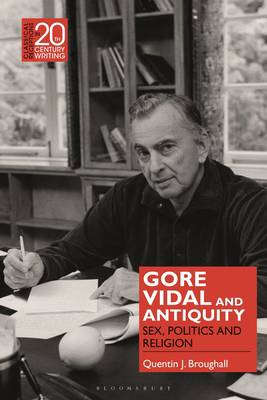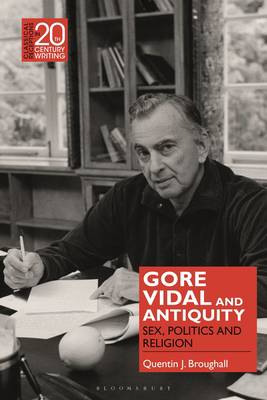
- Retrait gratuit dans votre magasin Club
- 7.000.000 titres dans notre catalogue
- Payer en toute sécurité
- Toujours un magasin près de chez vous
- Retrait gratuit dans votre magasin Club
- 7.000.0000 titres dans notre catalogue
- Payer en toute sécurité
- Toujours un magasin près de chez vous
Description
Representing the first survey of its kind, this book examines Vidal's lifelong engagement with the ancient world. By exploring Vidal's multi-faceted interaction with the classical past, Quentin J. Broughall argues that it was central to the way in which he viewed himself, his writing, and his world. Incorporating material from the full range of his prolific oeuvre, including novels, screenplays, essays and plays, this book will analyse the profound influence of classics upon Vidal.
Divided between three primary subjects of his writing - sex, politics and religion - this study traces the lengthy dialogue between Vidal and the ancient world over the course of his sixty-year career. It will evaluate the influence of a diverse array of ancient authors upon Vidal, including Aristophanes, Plato, Juvenal, and Petronius, and explore his portrayals of antiquity in novels such as Julian (1964) and Creation (1981). In addition, it will examine the ways in which the classical past inspired his many other works, including The City and the Pillar (1948) and Myra Breckinridge (1968). Vital reading for scholars of classical reception, as well as specialists in American literature and LGBTQ+ studies, this study presents an original perspective on one of the most provocative and talked-about figures of his generation, putting the classical past back at the heart of understanding Gore Vidal's extraordinary life and career.Spécifications
Parties prenantes
- Auteur(s) :
- Editeur:
Contenu
- Nombre de pages :
- 224
- Langue:
- Anglais
- Collection :
Caractéristiques
- EAN:
- 9781350155800
- Date de parution :
- 07-04-22
- Format:
- Livre relié
- Format numérique:
- Genaaid
- Dimensions :
- 156 mm x 234 mm

Les avis
Nous publions uniquement les avis qui respectent les conditions requises. Consultez nos conditions pour les avis.






